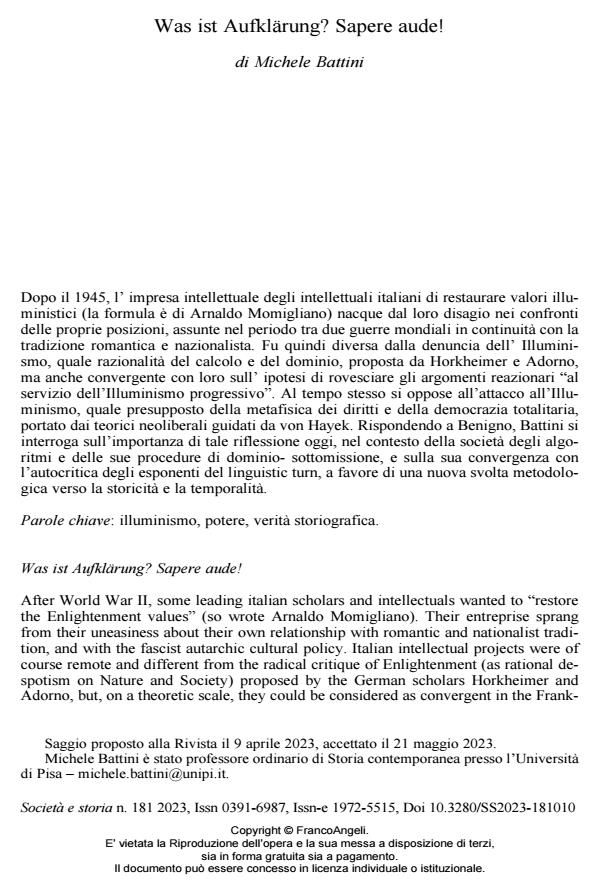Was ist Aufklärung? Sapere aude!
Journal title SOCIETÀ E STORIA
Author/s Michele Battini
Publishing Year 2023 Issue 2023/181
Language Italian Pages 10 P. 607-616 File size 167 KB
DOI 10.3280/SS2023-181010
DOI is like a bar code for intellectual property: to have more infomation
click here
Below, you can see the article first page
If you want to buy this article in PDF format, you can do it, following the instructions to buy download credits

FrancoAngeli is member of Publishers International Linking Association, Inc (PILA), a not-for-profit association which run the CrossRef service enabling links to and from online scholarly content.
After World War II, some leading italian scholars and intellectuals wanted to "restore the Enlightenment values" (so wrote Arnaldo Momigliano). Their entreprise sprang from their uneasiness about their own relationship with romantic and nationalist tradition, and with the fascist autarchic cultural policy. Italian intellectual projects were of course remote and different from the radical critique of Enlightenment (as rational despotism on Nature and Society) proposed by the German scholars Horkheimer and Adorno, but, on a theoretic scale, they could be considered as convergent in the Frank-furt School plan to reverse reactionary tropes in favour of "progressive Enlightenment". The restoration of the Enlightenment values was also opposed to the neo-liberal critique of the so called Kant’s so called legal constructivism and positivism, or Rousseu’s totalitarian democracy. (See Law Legislation and Liberty by F. von Hayek). To restore Enlightenment values is also crucial today, in the new context of the algorithms society with its new mechanisms of power and submission, but it is also crucial in order to favour a new critical turn towards historicity and temporality.
Keywords: Enlightenment, Power, Historical Truth.
Michele Battini, Was ist Aufklärung? Sapere aude! in "SOCIETÀ E STORIA " 181/2023, pp 607-616, DOI: 10.3280/SS2023-181010